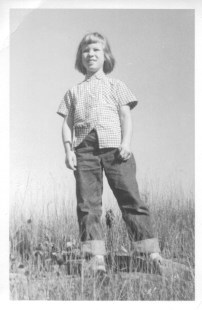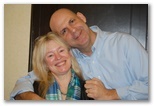That writing advice you’ve read? Take it with a grain of salt.
Kate Flora: March is the month when I usually write one or two short stories along with whatever else I’m writing. The process of writing short stories is different from the way I write novels, and it reminds me of things I’ve learned about writing over the past four decades.
whatever else I’m writing. The process of writing short stories is different from the way I write novels, and it reminds me of things I’ve learned about writing over the past four decades.
When I write a novel, I usually know a lot about the story before I begin. Since they’re usually crime novels, I know who my protagonist will be, who the victim is, how they were killed, some details about the crime scene that will be relevant to the story, who killed them them, why they were killed, and who else might have wanted them dead. That’s a lot, right? And it’s arrived at by some months before I start the actual writing that I call “cooking the book.” During those months I’m asking a lot of those essential questions about who my characters are and why they’re in the book. The ‘what’s this about?’ questions. The ‘why were they killed?’ questions. Much of that is done before I start to type Chapter 1.
What does that have to do with writing advice? Well, most of us read books about how to

The girl who dreamed of being a writer
write, don’t we? I have shelves of them. Some I’ve started and never read, especially those that promise to tell me how to write a best seller. Some I return to time after time, and often when I return, the books are different because I’m a different writer than I was five, ten, or thirty years ago. What they have to with my writing process, and perhaps yours, is that whatever the experts have to say about writing, you have to take that advice with an eye to your own work and your own intentions for the story. Some advice will work for you; some will not.
Sometimes, over the years, when I’m teaching writing or doing a manuscript critique, I’ll give some advice on a piece and be met with some version of ‘my last writing teacher said x, or y’ and my advice is wrong. These are often students who are looking for the answer or answers that will let them do their writing. The magic. The secret. The truth, as Sue Grafton told me years ago, is this: there is no magic and there are no shortcuts.

The champagne my husband bought when I sold my first book
I’m not sure I agree with Sue about the magic. Sometimes, when you get into the flow and the words are coming at you with lightning speed, when your characters take over the narrative and story is happening, there is magic. But to be available for that magic, you have to do the work and be in the chair. You have to be there when the magic arrives. So to my disagreeing students, and to all the students I’ve taught, I say that every writer is different and every writer’s process is different. But you will not discover your own process unless you’re actually writing.
Not writing for class. Not doing an assignment. Not following a prompt you’ve been given. But carving out the time in your life to write on a regular basis. To write long enough to learn what you care about and works for you. Are you a morning writer? Do you like to write late at night? Are you a cooker who carries the plot around with you while you do errands or someone who loves to work and rework the writing until it feels just right?
Something else I’ve learned over the years that surprises me: even when I’ve written many books, the process of writing each book can be individual. Sometimes the story will come easily and other times I describe it as writing the words on my skin, then carving off that skin and pasting it to the page. Sometimes the story will flow until the middle and suddenly become impossible to move forward. Sometimes I rush my endings. Sometimes when I’m rewriting I’ll realize that I need to muscle my chapters apart and insert another one to make the story work.

Kate shares a moment with Harlan Coben
Short stories are different still. Usually when I write a short story, I just sit down and write the first draft in one or two sittings. Then, as though I am making bread, I let it rise, and punch it down, and knead it, and let it rise and knead it again. I will lie awake at night thinking about how I’ve failed to adequately develop the character and so the story can’t flow. Sometimes I can’t find the character’s voice and world view and understand why the story is about them until the second or third try. Sometimes, as these are crime stories, I’ve failed to leave the precursor clues early in the story that will make the ending both plausible and a surprise.
So, dear readers, what is your process? Do you have favorite writing books?
Lea Wait's Blog
- Lea Wait's profile
- 508 followers



